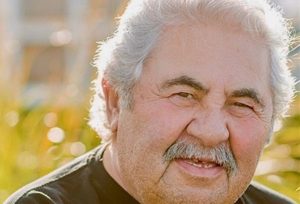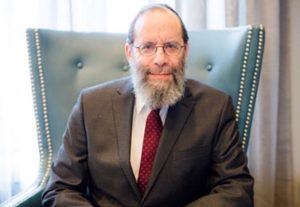TORONTO — When the Hebrew University of Jerusalem opened its doors 90 years ago – 23 years before the State of Israel was established – it set the foundation for a culture in Israel that prides itself on academic excellence and succeeding against all odds.
On May 12, the Canadian Friends of Hebrew University (CFHU) will celebrate the university’s 90th anniversary, as well as the centennial of the Theory of Relativity, posited by Albert Einstein, one of the institution’s founders.
At the Einstein Legacy Awards, to be held at Toronto’s Liberty Grand with former U.S. first daughter Chelsea Clinton as the keynote speaker, a number of families will be honoured for their commitment to social responsibility and education.
“Albert Einstein was a leader and an inspirational figure and an outstanding, remarkable scientist. He influenced the world, and his spirit and unique approach to science was adopted also by the Hebrew University. Therefore, we chose to honour all the leadership,” said Rami Kleinmann, president and CEO of CFHU, an organization that is also celebrating a 70-year milestone as a Canadian fundraising arm of the university.
“We’re celebrating three parts. We’re celebrating leadership, we’re celebrating inspiration and we’re celebrating science.”
Kleinmann explained that Einstein, who founded the university in 1918 along with Sigmund Freud, Chaim Weizmann and others, was also the first fundraiser for Hebrew U.
“He and Chaim Weizmann held the first fundraiser in [1920]… to fundraise for the establishment of the Hebrew University. They ended up raising an astonishing amount, $2 million,” Kleinmann said, adding that today, that would be the equivalent of about $25 million.
“As [former Israeli president] Shimon Peres said a couple years ago, the Hebrew University was a rare situation where a daughter gave birth to a mother because Hebrew University was established well before the state of Israel was established,” he said.
“This is the only rare example where, before you even have a state, you have a university, but I think this was also part of [Einstein’s] very deep understanding that in order to have the right tools to build a future state [you must] understand that the foundation is in education, and science…”
Kleinmann said that Hebrew U served as the foundation to science and academia in Israel.
“Until today, we like to talk about it as an excellent university. Israel today, in every single aspect, is thanks to the approach of putting education and striving towards excellence into the DNA of the country,” he said.
“You need to create a quality of scientists, and you need to create a culture and you need to create an inspirational climate of creativity in order to be able to achieve all these goals in the area of entrepreneurship, in the area of the ‘start-up nation’ and in the area of coming up with a very unique and creative way to defend yourself.
“All of this together is definitely a culture that has been initiated by the Hebrew University and spilled over into many other institutions in Israel. But this is one of the major contributions that Hebrew University created and the impact that it created in Israel.”
Hebrew U president Menahem Ben-Sasson, who will attend the event in Toronto next month, wrote in a letter posted to the CFHU website, that looking back over the past 90 years, the university has succeeded even beyond the expectations and dreams of its forefathers.
“Thanks to the vision of Hebrew University’s founders and the determination of their successors, we have succeeded in making rigorous scientific investigation an integral part of common parlance in Israel,” Ben-Sasson wrote.
“Today, too, we remain loyal to the basic principles of the founding vision: rigorous scientific inquiry along with service to society through research. In addition, we must serve as an exemplar of a multi-cultural, pluralistic, socially aware community characterized by mutual respect and co-operation.”






